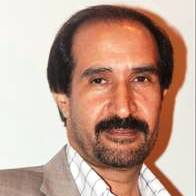Iran and the Shanghai Cooperation Organization

IRD: Ten days after the latest Shanghai Cooperation Organization summit held in Kazakhstan, how do you assess Iran’s stature in the organization?
JK: Iran is a natural geopolitical power with a potentially expanded zone of influence; in the Middle East, Persian Gulf, Central Asia, Caucasia and the Caspian region. In its northern borders, it has proved as a weighty actor in the security and political developments in cases such as the Karabakh conflict, the civil war in Tadjikistan, and the fall of Taliban Afghanistan. After the establishment of the Shanghai Cooperation Organization, and its subsequent evolution from a small organization (the Group Five) with periodical meetings to solve border issues –mainly between Central Asian countries and China- into a mutual security and eventually economic organization, Iran initially joined the SCO as an observer member, and its geopolitical and economic potentials persuaded it to apply for full membership in March 2008.
IRD: What are the setbacks to Iran’s official membership? Since Iran’s bid is still not on the organization’s agenda, what is discouraging the SCO from admitting Tehran’s full membership?
JK: The organization has not yet decided about any of the observer states, which include Iran, India, Mongolia and Pakistan. Terms and conditions also hinder Iran’s move towards membership. The major stipulation that prevents Iran from joining the six constituent countries is that members should not be under UN international sanctions. But there are obstacles with weightier long-term implications. Russia, more than any other member, is unwilling to acknowledge Iran’s role in Central Asia, while China tends to keep the political and security dimension less powerful. Neither of these two countries, nor the Central Asian members, are fond of Iran’s anti-American stance, which can overshadow the original purpose of the organization. They do not want the SCO -whose focus is on resolving bilateral and multilateral differences, containing radicalism and terrorism and reinforcing economic cooperation- to move towards serious competition with West. Of course, in the 2006-2008 period –the ebb of Moscow-Washington ties during Bush-Putin era- Russia tried to frame the organization as a rival to NATO, an Eastern contender. But apart from that, Moscow is reluctant to see the SCO as NATO’s rival.
China has compelling reasons to be hesitant about Iran’s bid. Economic interests and close cooperation with Western countries render Beijing unwilling to enter an international security bloc that may concern Western countries. In the eyes of China, Russia, and Central Asian countries such as Kazakhstan and Uzbekistan, Iran’s full membership, despite its economic and security advantages, can drag SCO into the fight between Tehran and the West. Opposition can also have minor causes. Uzbekistan for example –with a notable Persian-speaking Tajik minority- has political and cultural issues with both Iran and Tajikistan. So I think Iran should not be too hasty about membership and wait to see if other candidates like Pakistan and India can find their way through the organization. Iran’s path will be smoother if they are admitted first.
IRD: Ahmadinejad and the Russian President Dmitri Medvedev met on the sidelines of the recent summit. Some construe this as a new chapter in Iran-Russia relations, after Tehran and Moscow traded barbs about one year ago. Do you have the same perception?
JK: Relations between Tehran and Moscow have improved during recent months. Russia still follows its traditional line, advocating Iran’s right to wield peaceful nuclear energy and calling for a diplomatic solution to Iran’s nuclear program, while demanding from Iran that it show further transparency in its nuclear program and expand its cooperation with IAEA. Rapprochement between Tehran and Moscow can also mirror the Kremlin’s lingering concerns about the US’ missile defense shield.

